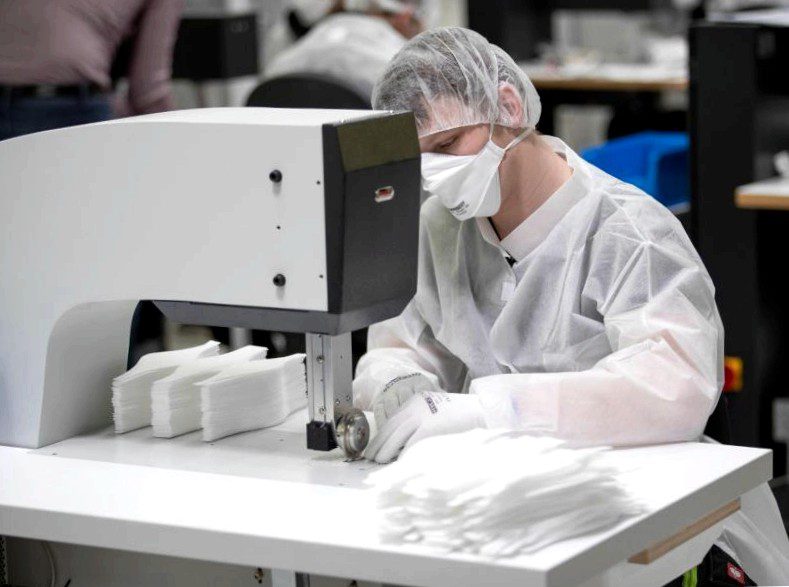German government sees need for billions in protective masks

In view of the corona crisis, the federal government sees a need for billions of protective masks. In order to become less dependent on china, the establishment and expansion of the production of medical protective equipment in germany should be pushed forward.
After a meeting of the corona cabinet in berlin on thursday, economics minister peter altmaier (CDU) said that germany would need several billion euros within months for all types of masks, from simple everyday masks to special masks for medical personnel. The demand will increase permanently and will remain high for a long time. Masks and other protective equipment are currently in short supply worldwide, prices have risen immensely.
German chancellor angela merkel (CDU) said global demand had multiplied. This was to be the case for a long time to come. 90 percent of protective equipment comes from asia. "And that’s why we have to get involved in this field."It is necessary to achieve a greater strategic independence, this must also happen in the association of the european union.
According to minister jens spahn (CDU), in the current corona situation, the healthcare sector alone is expected to require up to 450 million FFP-2 special masks per year. In addition, one billion surgical masks were used as mouth-nose protection. Protective equipment currently in short supply worldwide.
The federal government has therefore entered into a procurement and wants to use incentives to build up domestic mask production. A task force has been set up in the ministry of economics for this purpose. Altmaier said that a goal would be achieved if the percentage of existing production in asia could be visibly reduced. The ramp-up of in-house production will not happen at the push of a button, but it is not far off either.
Altmaier made it clear that a sufficient number of protective equipment is of crucial importance when it comes to restarting public life and the economy.
The federation of german industries (BDI) said that industry was helping and would continue to help. But for this the policy must help the companies. "The production of protective goods should be economical, otherwise medium-sized companies in particular are threatened with financial ruin," said iris ploger, member of the BDI executive board.
The industry is concerned that in recent weeks the federal government has gained far-reaching powers to intervene in the production, price and trade of corona protection products. "Efficient crisis coordination is crucial to ensuring that society and the economy in germany suffer as little damage as possible. However, it must not take the form of a planned economy."
According to a survey conducted by the german textile and fashion industry association, around 40 percent of companies had begun to manufacture protective equipment or simple everyday masks in recent weeks, or were planning to set up production of such products. But the companies had to be internationally competitive, for example when it came to energy-intensive production processes. Therefore, planned demand instruments for the production of certain nonwovens are important, as well as purchase guarantees.
Altmaier spoke of an industrial policy issue, which also applies to the production of pharmaceuticals. Together with france and the EU commission, it wants to examine how incentives can be created for companies. He referred to his initiative for the production of battery cells for electric cars in europe and germany – here, too, suppliers from asia have dominated the market so far.
Spahn reported that after an initial small-scale tender, more than 100 bids had been received that appeared to be eligible for award. This, he said, would involve initial deliveries by mid august. Contracts should run until the end of 2021 to provide planning certainty.
The federal government is expecting a further supply of protective equipment for medical personnel this week, with 40 million protective masks expected to arrive in germany. That is as much as in the two previous weeks together, spahn affirmed on thursday. Background is also a cooperation with lufthansa in a kind of "air bridge" for regular transport flights to china.




